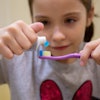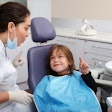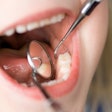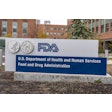
In children, probiotics may reduce the presence of Streptococcus mutans (S. mutans), a germ commonly linked to caries, but they do not significantly affect other dental issues. The meta-analysis was recently published in the International Dental Journal.
Furthermore, probiotics showed no significant impact on dental caries, the Lactobacillus count, the bacterial plaque index, the gingival index, or salivary pH, the authors wrote.
"Probiotics were likely to decrease the amount of S. mutans compared to the control group," wrote the authors, led by Frank Mayta-Tovalino of the Universidad Científica del Sur in Peru (Int Dent J, July 17, 2024).
To evaluate the effects of probiotics on caries-related outcomes in children and adolescents without underlying systemic diseases, a comprehensive meta-analysis of randomized controlled trials was conducted.
The analysis included trials comparing probiotics with a control (no treatment or placebo) for at least 0.2 months and reporting at least one primary or secondary outcome. Primary outcomes were the number of caries, S. mutans count, and Lactobacillus count, while secondary outcomes included the bacterial plaque index, the gingival index, salivary pH, and bleeding index, according to the study.
After analyzing 19 trials (n = 2,622) with follow-ups ranging from 0.2 to 108 months, it was revealed that probiotics showed no effect on reducing dental caries (mean difference [MD], -0.24 carious pieces; 95% confidence interval [CI], -0.72 to 0.23; I2 = 52%; low quality of evidence [QoE]) or Lactobacillus count (MD, -0.78 CFU/mL; 95% CI, -1.65 to 0.09; I2 = 52%, very low QoE) compared to control.
However, probiotics likely reduced S. mutans count (MD, -0.40 CFU/mL; 95% CI, -0.57 to -0.24; I2 = 11%, moderate QoE). Furthermore, probiotics had no effect on the bacterial plaque index (MD, 0.21; 95% CI, -0.55 to 0.96; I2 = 80%, very low QoE), the gingival index (MD, 0.04; 95% CI, -0.18 to 0.27; I2 = 0%, low QoE), or salivary pH (MD, -0.12; 95% CI, -0.72 to 0.48; I2 = 92%, very low QoE) compared to control, according to the results.
The study did have some limitations, including that the studies came only from the Middle East. Therefore, the findings may not be applicable to other populations, the authors wrote.
"Larger RCTs with longer follow-up are needed to evaluate the long-term effect of probiotic consumption on oral outcomes in children and/or adolescents," Mayta-Tovalino et al wrote.




















